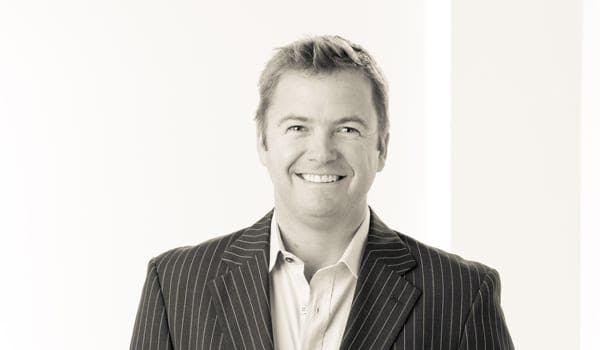Finding the money to start a business is a problem for many budding entrepreneurs, but Rob Nixon decided to risk it all by putting $90,000 on his credit cards to get his start.
After dropping out of high school in Dubbo, Nixon taught himself about sales and marketing before starting a software company aimed at accountants. He then launched the Proactive Accountants Network, a coaching program, in 2005.
Dynamic Business had a chat to Nixon about taking risks in business.
How did you start your own business?
In my first major role, I was an executive at a company that focused on helping accounting firms be successful. That business got sold, and with what I knew about that industry I decided to start a software company in 2001. I’d never been in the software business before, but that company was started to fill a gap in the market that I saw. I got some business partners, and we raised 1.1 million over 4 or 5 funding rounds to develop the business, we licensed a piece of software from the UK, modified it, and then built our own piece of software. That business started to run out of cash it was bankrolled on my credit cards. At one stage I had $92,000 racked up on my Diners card to fund the business. We had no money at all, but I had good credit cards, and we bankrolled the business until the first round of money came in, [and] $125,000 we used to pay off the credit card.
Then away we went; we were making sales 6 weeks before we had a product, working night and day to sell the product to accountants. That business was quite successful. Although because of the funding that we raised I only ended up owning 25 per cent of it, the lesson in that is, if you’ve got an idea, just go for it and make it happen. There’s no fall back position, it was either succeed or fail and there was no in-between. When you rack up $100,000 on the credit cards to bankroll the business, you can’t pay yourself and you’re hungry, so you have to make sales and make it go.
What convinced you the debt was worth it and that you could make the business work?
In the lead up to that point, I was very successful in marketing and sales. I was 32, I’d left school when I was 16, and from the age of 17 I self-taught myself business, marketing, and sales, so I had no university degree or anything like that. I lived in Dubbo, and because it was so remote, I bought products and subscriptions and books and other material about marketing and sales and business, and worked a number of jobs so when it came time to start the business, I completely backed myself and had no doubt whatsoever that I could sell it.
One thing I learned a long time ago from one of my mentors is that marketing and sales will get you out of any business problem you’ve got. Since most business issues are about money, having the ability to market and sell will get you out of trouble.
What led you to start the Proactive Accountants Network?
I lasted four years in that business, and I realised it wasn’t the type of business for me. That business model still exists today, but I walked out of that business because I was frustrated about its progress; we had about $3 million in revenue by the time I walked out and we were making a profit, but I walked out and decided to start the business I’ve got now.
I wasn’t paid out until a year after I walked out, so I basically walked out of that one with no income, but to back myself, I said that I had a better idea with the same target market in mind, and started this group coaching business that evolved into an online business. I remember in 2005, in my first month I got $2,000 in revenue, so I did a bit of marketing and by the second month I had $24,000, the third I had $26,000 and by the time the first year rolled around I’d done $975,000 in revenue from a standing start. This year we’ll do about $7 million, so it’s just grown and grown. Again though, it came from a good idea where I’d backed myself. I had every challenge you can think of, product doesn’t work, service doesn’t work, cash flow problems, people problems, hiring issues, team walkouts.
What tips would you give aspiring business owners?
It’s not good enough to have a good product or service idea. That’s one part of the puzzle, and you may be the best technician at making that product and servicing that thing, and it may be a great idea, but in my experience that’s not enough unless you have the abilities to market that and sell that, otherwise it’s just a good idea going nowhere.

